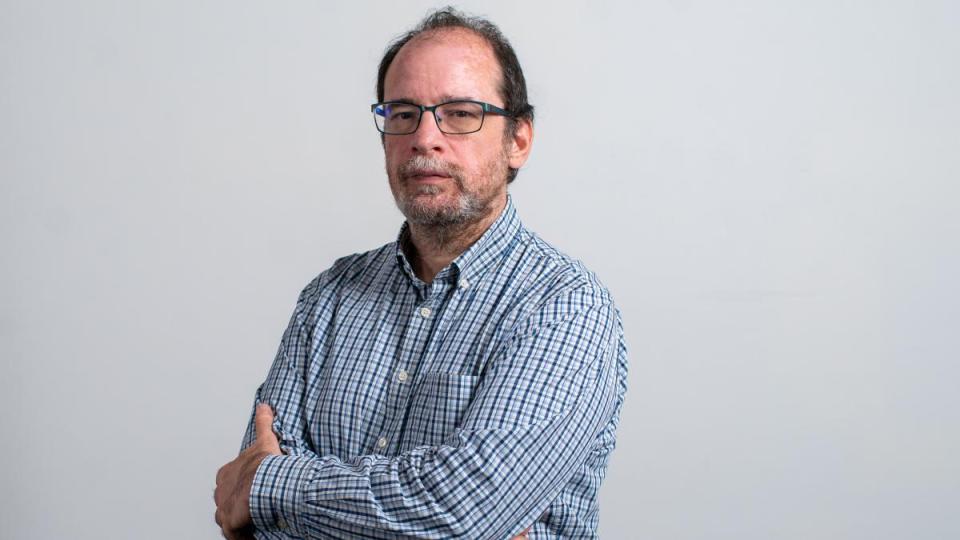Greetings from the Director
As its precursor, Collegium Budapest, was founded in 1992, IAS CEU is among the primary examples of institutional innovation that emerged in the wake of the regime changes in Central and Eastern Europe. It operated on the assumption that it was possible and desirable to bring together international academic networks and local scholars in a productive dialogue, which could substantially contribute to the democratic transformation of these societies. Launching an Institute for Advanced Studies in Budapest – on the initiative of the Wissenschaftskolleg zu Berlin – was an important piece of the institutional puzzle, linking it symbolically to the prestigious tradition launched by Princeton IAS and the emerging European network of similar centers. A core value of all these institutions, cherished also by their peer in Budapest, was autonomy and responsibility – offering ideal conditions for work and catalyzing an atmosphere of dialogue for representatives of very divergent disciplines, coming from diverse geo-cultural, intellectual, and political locations, and expecting to create synergies that could help eliminating the academic vestiges of the Iron Curtain.
Needless to say, the three decades that passed since then considerably reshaped the expectations of funders, fellows, and the public. If in the 1990s the Collegium represented an avantgarde of international academic dialogue, after the 2010 attempt of the newly elected Orbán government to curtail the autonomy of the institution, including the loss of its headquarters in Buda Castle, it turned into a symbolic battleground of an emerging autocratic regime and the supporters of an institutional model where knowledge production is not subordinated to the whim of political power-holders. The ideologically motivated closing down of the Collegium Budapest led to its reconfiguration as part of CEU, and eventually the move of CEU’s degree programs to Vienna, as a consequence of the 2017 “Lex CEU,” turned the Institute into one of the last bastions of academic freedom in Hungary.
The changing context also prompts a different institutional approach, bringing new responsibilities and intellectual agendas. CEU IAS has a unique position to initiate and sustain a global dialogue on issues that have become central to the experience of this part of the world, after the global success of illiberal and autocratic political projects. Such themes include the future of democracy; the relationship of liberalism, socialism, and conservatism; the epistemological basis of our claims of truthfulness and evidence; the role of new media and digital humanities in generating and transmitting knowledge; modernity and postmodernity; the relationship of art and society; the dilemmas of rule of law and the hacking of the legal system; projections of the future and the past to sustain democratic and anti-democratic politics; multiethnic co-existence and national homogenization; experiences and patterns of migration and displacement; inequalities and social movements; scholars at risk and academic precarity (both political and economic); memory regimes and “coping with the past”; transitions to and from democracy; the morphology of political cultures and the dynamics of political polarization; and also the effects and lessons of full-scale warfare.
These topics link us naturally to the other institutions of CEU continuing to operate in Budapest: the Democracy Institute and the Open Society Archives. Rather than applying the scorched-earth tactics, and declaring that Hungary or East Central Europe as a whole are irretrievably lost to autocrats, we seek to reflect critically on the experiences of the last half century preceding and following the 1989 annus mirabilis and intend to provide a vantage point from where many academic questions – which are timely existential issues as well – can be rethought. As the situation around us is in many ways unprecedented, in this novel framework IAS CEU is meant to operate as an intellectual and institutional sanctuary and a laboratory for innovative ideas – that may have traction even outside the walls of IAS – taking intellectual risks, asking new questions, and creating new synergies locally, trans-regionally, and globally. Researchers at IAS are encouraged to launch and test new ideas while receiving feedback on multiple levels, from their peers, from the broader Budapest framework, from their colleagues teaching at CEU, from and beyond the OSUN network.
In a moment when local agency can have unprecedentedly complex global entanglements, generating even such seemingly absurd questions whether Hungary is a “possible future” of the United States, our aim is to turn these regional and global entanglements into catalysts of intellectual curiosity, but also a basis of academic solidarity. In the given global context, IAS cannot be merely about cherishing one’s apparent academic freedom and excellent individual conditions of doing research but also using this privileged position to relink the academic, civic, and educational functions inherent to the very vision of the Central European University. The idea of CEU emerged from the dissident culture of the 1980s, striving for academic and political autonomy, with a strong commitment to the reflective and responsible intellectual traditions of the region offering an alternative to self-enclosing nationalism, and, equally important, a craving for a global intellectual exchange and relevance. The Institute hopes to pursue these aims, remaining always self-reflective, ready to experiment, establishing new connections, and offering a “safe space” for creative and independent thinking in a world where there is an increasing scarcity of such hubs.
Balázs Trencsényi

